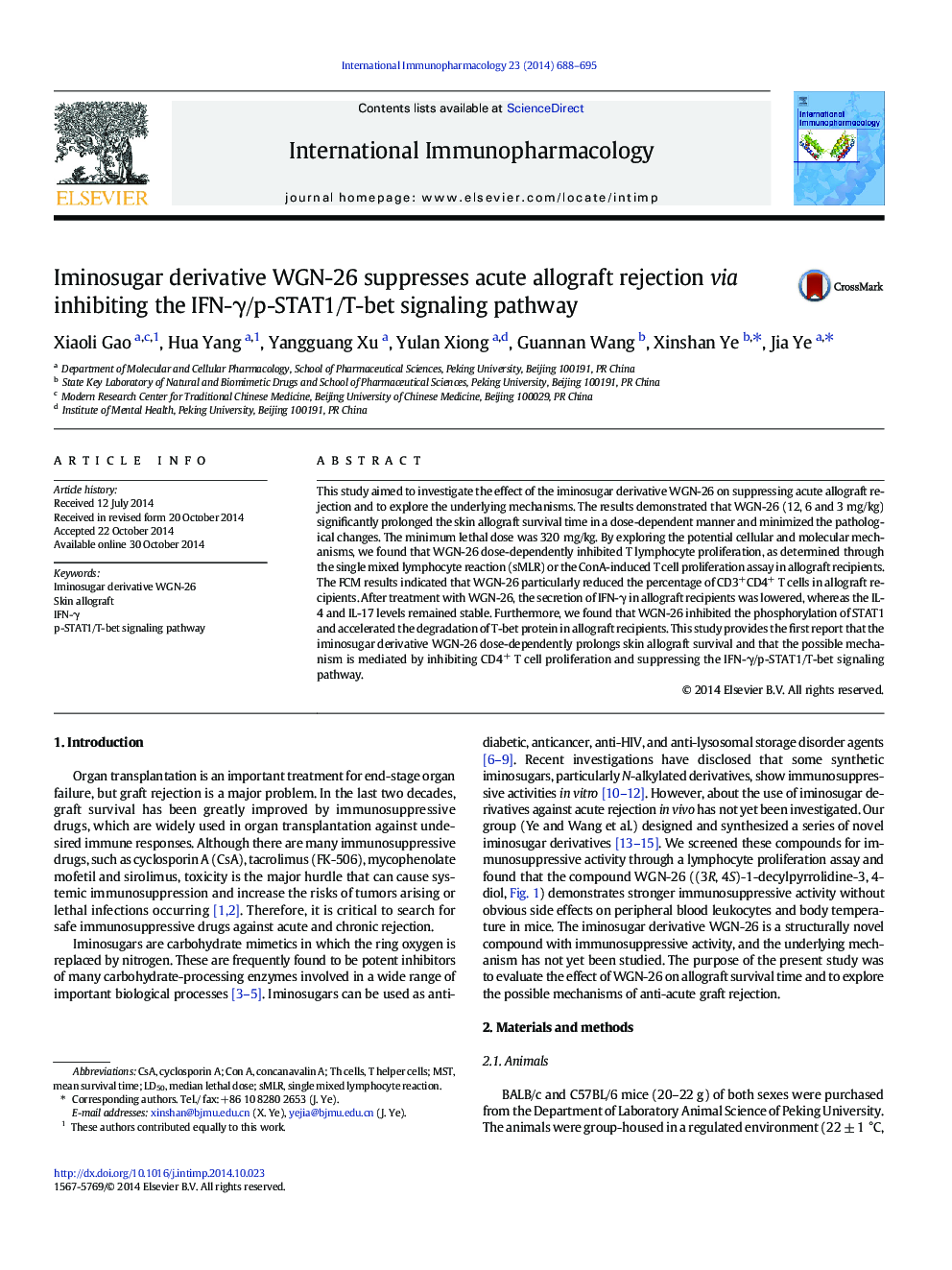| Article ID | Journal | Published Year | Pages | File Type |
|---|---|---|---|---|
| 5832610 | International Immunopharmacology | 2014 | 8 Pages |
Abstract
This study aimed to investigate the effect of the iminosugar derivative WGN-26 on suppressing acute allograft rejection and to explore the underlying mechanisms. The results demonstrated that WGN-26 (12, 6 and 3 mg/kg) significantly prolonged the skin allograft survival time in a dose-dependent manner and minimized the pathological changes. The minimum lethal dose was 320 mg/kg. By exploring the potential cellular and molecular mechanisms, we found that WGN-26 dose-dependently inhibited T lymphocyte proliferation, as determined through the single mixed lymphocyte reaction (sMLR) or the ConA-induced T cell proliferation assay in allograft recipients. The FCM results indicated that WGN-26 particularly reduced the percentage of CD3+CD4+ T cells in allograft recipients. After treatment with WGN-26, the secretion of IFN-γ in allograft recipients was lowered, whereas the IL-4 and IL-17 levels remained stable. Furthermore, we found that WGN-26 inhibited the phosphorylation of STAT1 and accelerated the degradation of T-bet protein in allograft recipients. This study provides the first report that the iminosugar derivative WGN-26 dose-dependently prolongs skin allograft survival and that the possible mechanism is mediated by inhibiting CD4+ T cell proliferation and suppressing the IFN-γ/p-STAT1/T-bet signaling pathway.
Keywords
Related Topics
Life Sciences
Immunology and Microbiology
Immunology
Authors
Xiaoli Gao, Hua Yang, Yangguang Xu, Yulan Xiong, Guannan Wang, Xinshan Ye, Jia Ye,
